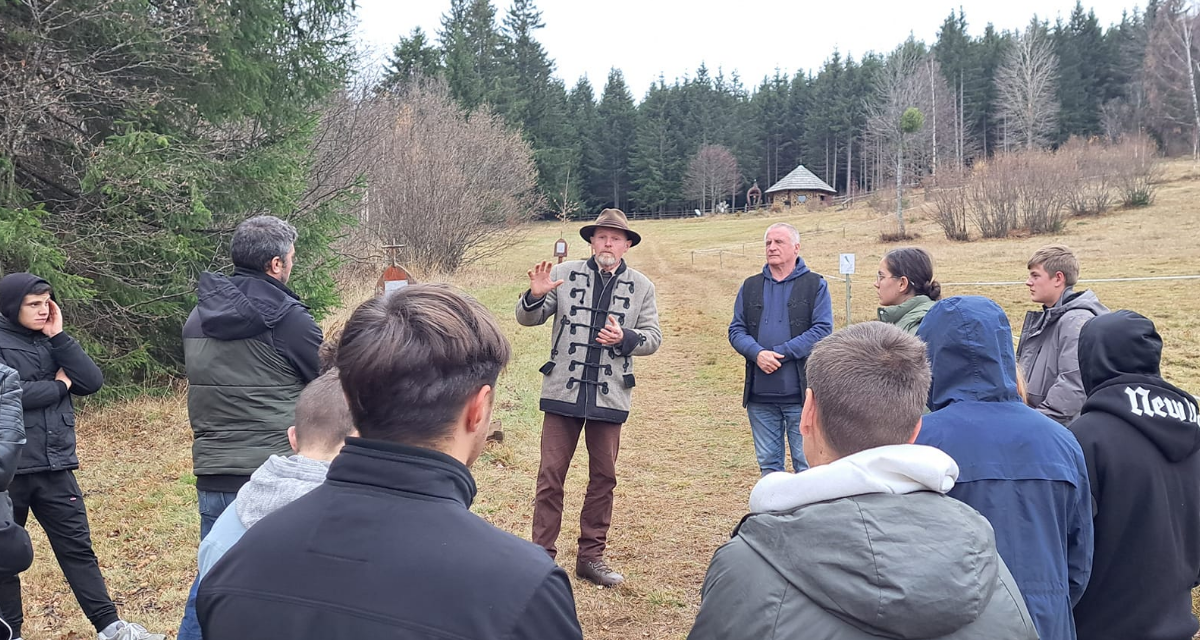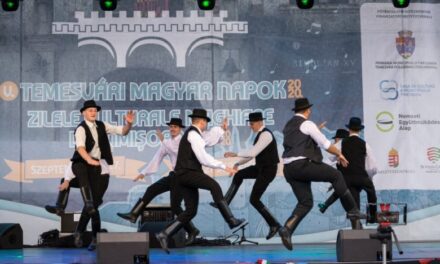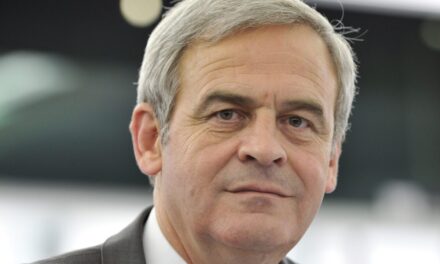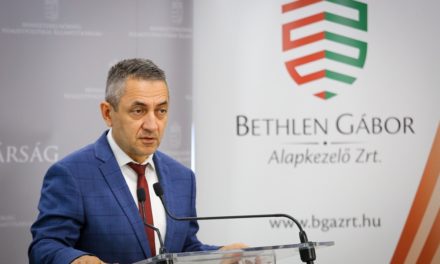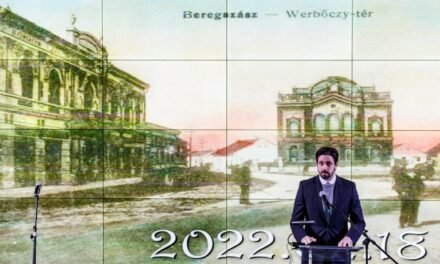Csaba Böjte asked us to be allies in the prayer campaign undertaken for blessed peace.
On St. Martin's Day, Transylvanian Franciscan monk Csaba Böjte, several employees of the St. Ferenc Foundation in Déva, educators, foster children and supporters, a group of friends visited eight military cemeteries in Úzvölgy to pay their respects at the graves of fallen heroes, plant flowers and pray as Hungarians, regardless of nationality. also for peace at the final resting place of non-Hungarian soldiers.
They also visited abandoned graves on which oblivion left a strong mark.
According to the father, the success is clear, which is shown not only by the number of participants, but also by the reactions they met at each location.
As is well known, the Úzvölgy military cemetery, in which most of the Székely and Hungarian soldiers are buried, is a permanent location for the actions of extreme nationalist groups inciting Romanian-Hungarian unrest and hostility.
The dispute in Úzvölgy can be traced back to 2019, when the mayor of Dormánfalva in the neighboring county created Romanian plots on the graves of Hungarian soldiers and had concrete crosses erected on them for unknown Romanian soldiers.
The fifty-one concrete crosses were erected despite the fact that, based on the latest available evidence, one, at most, two Romanian soldiers are buried in the cemetery.
The inauguration of the Romanian monument in the Hungarian cemetery, on the graves of Hungarian soldiers, caused a huge indignation. On February 10, 2023, the Bákó District Court declared in a final judgment that the concrete crosses must be demolished and restored to their original state. This summer, the demolition took place, but peace was not restored over the graves.
Transylvanian Franciscan monk Csaba Böjte, the founder of the St. Francis Foundation in Déva, came up with the idea just over a week ago to visit his Úzvölgy - where not only the graves of Hungarian soldiers are located, but also countless others - on November 11, the feast of St. Martin the abandoned graves.
According to the father, the peaceful coexistence of the two peoples is a common interest. Understanding and accepting each other's values and history is a condition for this. Saint Martin also showed how reconciliation can be achieved.
"November 11 is the feast of St. Martin, the first patron saint of the Carpathian Basin. A Roman who renounces his rank and moves among the Franks who invade the empire. Who does not want to defeat the enemy, but to convince them of the command of love. The apostle of Christian Europe," reminded Father Böjte on his social media page the other day. He added that Charles the Great was crowned by the Pope in Rome under the banner of Saint Martin as the first emperor of Christian Europe.
And St. István also visited the country under the banner of St. Martin and organized the peoples living here into unity.
"On November 11, we celebrate Saint Martin, the symbol of unity and togetherness, and we want to follow him in peace. On this day, starting from Csíkszentmárton, we will follow in the footsteps of Saint Martin in the military cemeteries of Úzvölgy and set off on our pilgrimage with flowers," wrote the monk. At the time, perhaps even he did not think that he had so many followers, as it turned out later: nearly seventy people joined him.
Opera singer Levente Molnár and Csaba Borboly, chairman of the Hargita county council, also took part in the pilgrimage.
"In eight military cemeteries, we prayed with our children and fellow pilgrims at the graves of those who fell in Úzvölgye. The sons of Hungarians, Romanians, Germans, Russians and who knows how many other nations rest here in peace. They are all victims of war. We kindly asked them to be our allies in the prayer campaign undertaken for blessed peace," said Father Böjte. He said that they stopped at every cross, brought flowers to every grave, remembered and prayed, in Romanian at the Romanian graves. In one of the cemeteries, they met an old man who at first looked at them strangely and questioningly, then when he heard that they were speaking Romanian, they continued to pray together.
"The uncle wept. We talked for a long time and then he invited us to meet again, and the whole village will welcome us with love," Brother Csaba recalled the most striking events that indicated the success of the pilgrimage.
Csaba Borboly announced the destinations of the pilgrimage in a live video on his social media page. The chairman of the Hargita county council said that the peace before 2019 must be brought back to Úzvölgy.
Many people can fit under the benevolent cloak of Saint Martin, not only those who today walked the path of peace in the Úzvölgy, armed with prayer and faith - emphasized the Hungarian politician from Transylvania.
Csaba Borboly also said that if the judiciary, law enforcement and politicians cannot do their job, they turn to God, who showed his strength on this day, when they could sing together with Romanians, in Hungarian and Romanian, and pray together at the graves.
"This day must be continued because this is the path to follow. You have to believe in the power of common prayer. Úzvölgye is not the valley of hatred and lies, but the eternal resting place of the heroic dead, regardless of nationality," declared the council president.
Cover image: Father Böjte said that they stopped at every cross, brought flowers to every grave, remembered and prayed
Source: Facebook/Csaba Böjte OFM

